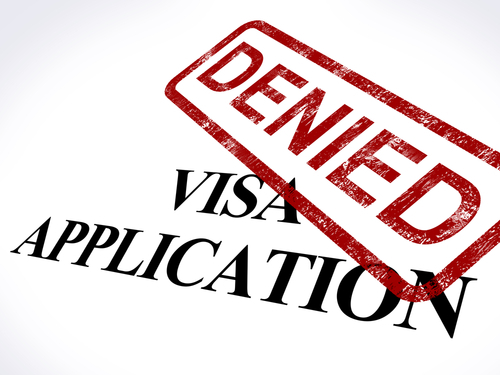An immigrant whose application to the U.S. Citizenship and Immigration Services (USCIS) is denied can appeal the decision to the Administrative Appeals Office (AAO).1
The AAO considers appeals of some 50 types of immigration applications and petitions. These include most employment-based and non-immigrant visa applications and permission to reapply for admission to the U.S. after deportation (I-212 waiver).
Appeals to the AAO must be filed within 30 days from when the USCIS officer makes his or her decision. Appeals are usually decided within 6 months, but can take longer. Expedited appeals may be available in case of hardship or emergencies.
The cost to file an appeal with the Administrative Appeals Office is $675. Immigrants who cannot afford the fee may be able to get a fee waiver.
To give you a better overview of immigration appeals our California immigration lawyers discuss the following, below:
- 1. What immigration matters can be appealed to the Administrative Appeals Office?
- 2. How do I file an AAO appeal?
- 3. How long do I have to file an immigration appeal?
- 4. How much does it cost to appeal to the Administrative Appeals Office?
- 5. Can I represent myself in an AAO appeal?
- 6. What if I can’t afford a lawyer?
- 7. How long does an AAO appeal take?
- 8. What is the process for the Administrative Appeals Office?
- 9. Will I need to argue my case in person?
- 10. What can I do if the AAO denies my appeal?
You may also wish to review our page on an overview of immigration appeals.

1. What immigration matters can be appealed to the Administrative Appeals Office?
The Administrative Appeals Office (AAO) reviews determinations made by U.S. Citizenship and Immigration Services (USCIS) officers.
There are approximately fifty different types of immigration applications and petitions that can be appealed to the AAO, including:
- Most employment-based immigrant and non-immigrant visa petitions.
- EB-5 immigrant investor petitions.
- Temporary Protected Status applications.
- K-1 Fiancé(e) visa petitions.
- Applications for a waiver of inadmissibility.
- Applications for permission to reapply for admission after removal / deportation (I-212 waiver);
- Certain special immigrant visa petitions.
- Orphan petitions.
- T visa applications for victims of human trafficking and related adjustment of status application.
- U visa petitions for victims of criminal activity and related adjustment of status application.
- Applications for certificates of naturalization and citizenship.
- Applications to preserve residence for naturalization purposes.
- Immigration and Customs Enforcement (ICE) determinations that a surety bond has been breached.
An immigrant may not appeal a field office’s rejection of an immigration benefit request. When USCIS rejects an immigration benefit request, it does not retain a filing date and there is no merits-based decision for the AAO to review.
The Administrative Appeals Office also does not handle decisions made by immigration judges during the immigration court process (such as deportation orders) or by officials with the Department of Homeland Security (DHS). Such decisions, when they can be appealed, are usually appealed to the Board of Immigration Appeals.
2. How do I file an AAO appeal?
When the USCIS denies an application, the agency sends a letter to the immigrant explaining the reason(s) for the denial. If the decision is one that can be appealed, the letter will contain information on how to file an appeal or a motion for reconsideration.
Most appeals must be filed on U.S. Customs and Immigration Service Form I-290B.
However some immigration categories have different appeal requirements, so the immigrant should review the denial letter and the AAO website carefully.
An appeal to the AAO must specifically set forth errors of law or fact made by the USCIS officer.
The immigrant or his/her attorney may provide this information in:
- A written statement attached to Form I-290B (no special format required), and/or
- In a legal brief.
The statement and/or brief must include all arguments the alien wishes the AAO to consider on appeal — even if he/she previously made the same arguments to the USCIS field office.
More information about briefs and supplemental evidence can be found at in the AAO Practice Manual, Chapter 3 – Appeals.
3. How long do I have to file an immigration appeal?
Most appeals to the AAO must be filed within:
- 30 calendar days after personal service of the decision, or
- 33 calendar days if the decision was mailed.
Because these are calendar days, Saturdays, Sundays, and legal holidays count. Begin counting with the first calendar day after the date on which USCIS mailed the unfavorable decision.
However, if the last day of the filing period falls on a Saturday, a Sunday or a legal holiday, the date is extended until the end of the next business day.
Note that the denial of some USCIS petitions carries only a 15-day appeal period. If this shorter period applies, it will be noted in the letter from the USCIS.

4. How much does it cost to appeal to the Administrative Appeals Office?
The current cost to file most AAO appeals is $675. This fee does not include any fees paid to a lawyer or other representative.
If the immigrant cannot afford the filing fee, he or she can request an immigration appeal fee waiver using USCIS Form I-912.
USCIS may grant a fee waiver if:
- The immigrant or his/her spouse is a head of household receiving a means-tested government benefit;
- The immigrant’s household income is at or below 150% of the Federal Poverty Guidelines; or
- The alien has another financial hardship.
All appeal applications must contain the proper filing fee or a fee waiver request or the appeal will be rejected.
USCIS periodically changes its fees. For the most up-to-date listing please see the USCIS fee schedule.
5. Can I represent myself in an AAO appeal?
Immigrants have the right to represent themselves during an appeal to the AAO.
But AAO appeals have strict rules that must be followed. Additionally, the AAO is bound by precedential USCIS decisions and court cases. These must often be carefully researched and argued.
Immigrants are almost always better off, therefore, having a lawyer or other authorized representative (such as an accredited representative or law student) handle their AAO appeal.
6. What if I can’t afford a lawyer?
The USCIS “Find Legal Services” webpage offers guidance on how to find legitimate help (and avoid scams) with AAO appeals.
Immigrants who cannot afford an attorney may be able to find low- or no-cost legal services through a program sponsored by their local bar association – for instance, the Los Angeles County Bar Association’s Immigration Legal Assistance Project.
7. How long does an AAO appeal take?
According to the AAO, 97% of appeals are completed within 6 months.2 But some cases may take longer. For instance, the AAO may require additional documentation or the case may be more complex and require additional review.
Appeals are generally considered in the order in which they are received. In an emergency situation, however, an immigrant may be able to get an expedited review of his or her case.
To request expedited processing, the immigrant must provide evidence that one or more of the following applies:
- Delay would cause severe financial loss to a company or individual;
- There is an extreme emergency situation;
- There is a humanitarian situation;
- A USCIS handling error created an unreasonable delay that may be fixed by placing the case back in its original order;
- A nonprofit organization is requesting the expedited processing in order to further the cultural and social interests of the United States;
- An official at the Department of Defense or other United States government entity requests the expedited processing because a delay will be detrimental to the government; or
- The USCIS has a compelling interest in expediting the appeal.
8. What is the process for the Administrative Appeals Office?
The administrative appeals process has two stages:
- The initial field review, and
- If necessary, the AAO appellate review.
First, the office that issued the unfavorable decision will conduct an “initial field review: This can take up to 45 days. During the initial field review, the USCIS office will evaluate the appeal and determine whether to take action favorable to the immigrant.
If the office decides not to take favorable action, it will forward the appeal to the AAO. The immigrant will then be sent a Notice of Transfer to the AAO.
The AAO will then conduct an appellate review. This can take up to 6 months (or longer) from the time it receives a complete case record after the initial field review.
9. Will I need to argue my case in person?
The Administrative Appeals Office generally conducts its review based solely on documents.
However, the AAO may grant a written request for an oral argument where:
- A case involves an issue of particular significance, and
- The AAO determines that it would benefit from a supplemental argument.
A request for oral argument must be made in writing either:
- When the immigrant or his/her attorney or representative files the appeal or motion to reconsider, or
- When a supporting brief is filed.
The request must explain specifically — and in writing — why oral argument is necessary.
If the AAO approves the request, it will notify the alien of the time, date, place, and conditions of the oral argument.
10. What can I do if the AAO denies my appeal?
An immigrant who loses an appeal to the AAO may be able to file a motion to reopen the case or a motion to reconsider the decision.
A motion to reopen is based on documentary evidence of new facts.
A motion to reconsider is based on a claim of an incorrect application of law or policy.
An immigrant generally may not appeal an unfavorable AAO decision to any other body. However, in very rare cases, a USCIS decision can be appealed to a federal appellate court.
In California, the proper court for such appeals is the United States Court of Appeals for the Ninth Circuit. Cases the 9th circuit will consider include (without limitation):
- Unreasonable delays by the USCIS in adjudicating an application or petition; and
- Denial of an application for naturalization by the USCIS.
Need help with an immigration appeal? Call us…

Call us for help
If you or someone you know is looking for help with an immigration appeal we invite you to contact us for a free consultation.
Our Los Angeles, California immigration attorneys have experience with appeals before the Administrative Appeals Office, the Board of Immigration Appeals and the United States Court of Appeals for the Ninth Circuit.
Call us or fill out the form on this page now to schedule your free consultation with a caring immigration lawyer.
Remember – you have just 30 days to appeal an adverse immigration decision. So call us today.
Legal references:
- 8 CFR § 103.3.
- Department of Homeland Security, AAO Processing Times.
